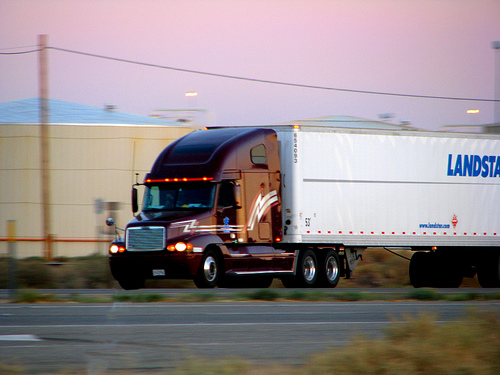There’s a strong argument to be made that the Jimmy Carter administration was the most libertarian-friendly of the last half-century. One of the administration’s signal accomplishments was the deregulation of the trucking industry. Jesse Walker tells the story:
Consider the farm policies established during the New Deal. Franklin Roosevelt’s agricultural advisers fell, roughly speaking, into two competing categories. One group, representing the old agrarian anti-monopolist tradition, wanted to level the playing field for smaller operators. The others saw big business as an ally, not an enemy; they believed, as Hamilton puts it, that the feds should “cooperate with monopolistic meatpackers and milk distributors to achieve efficiencies in the mass production and mass distribution of food.” The second group quickly became dominant, and the policies that followed encouraged consolidation and privilege: Price supports fed the biggest agricultural interests, dairy regulations locked a milk cartel into place, and acreage reduction requirements led to evictions of tenant farmers.
A similar fate befell the young trucking industry. After the Motor Carrier Act of 1935, drivers who wanted to start a new trucking firm “suddenly needed much more than just a truck and trailer to start in business,” Hamilton explains. “They needed to gain operating authority as well, which the ICC granted only after lengthy and expensive proceedings meant to discourage competition.” There was one bright spot in the law, though—a rare victory for the populist elements of the administration. Agriculture Secretary Henry Wallace “recognized that independent truckers might undermine the monopoly power of railroad-based food processors,” so he endorsed an exemption to the ICC’s restrictions on the trucking trade. Drivers hauling farm products would be relatively unregulated, a decision that allowed a fleet of tiny trucking firms to flourish. Meanwhile, in the rest of the industry, the government’s rules favored large, established companies—and, later, the Teamsters, who negotiated sweetheart contracts with the cartel while disdaining independent drivers.
The Interstate Commerce Commission maintained a tightly-regulated trucking cartel for a half-century until the late 1970s:
Mike Parkhurst was a trucker turned reporter whose magazine, Overdrive, aspired to speak for the independent owner-operator; it was filled with exposés and editorials attacking the Teamsters union, the Interstate Commerce Commission (ICC), and the maze of state and federal rules that befuddled and burdened the ordinary driver. In his magazine and in testimony before Congress, Parkhurst called for a sweeping deregulation of his industry, a push that culminated with the Motor Carrier Act of 1980. The new law, sponsored by Sen. Ted Kennedy (D-Mass.) and signed by President Jimmy Carter, radically reduced the ICC’s authority, eliminating entry barriers, price controls, and other policies that had protected a cartel of carriers from competition. Before 1980, independent truckers had been limited to transporting farm commodities. Under the new rules, thousands of new firms flooded into the remainder of the industry, driving down prices for manufacturers and consumers alike.
The debate over deregulation during the 1970s is interesting because it didn’t break down along traditional partisan or ideological lines. The leading advocates were liberals—Stephen Breyer, Ted Kennedy, Jimmy Carter—but the movement also had significant support from the free-market right and from small entrepreneurs. Large, incumbent firms in these industries joined forces with their associated unions to oppose reform.
The battle, in other words, was between advocates of competition and advocates of corporatism. The corporatists dominated Washington policymaking in many industries from the New Deal until the Nixon years. For reasons that aren’t clear to me, their power collapsed in the mid-1970s. And the result was a sweeping transformation of the American transportation and communications industries whose benefits we continue to enjoy today.




16 Responses to The Bottom-Up Revolution in Trucking